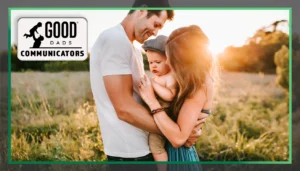
One of my son’s teachers, who also happens to be a very good friend, gave the kid a graduation card that was a special encouragement to him. I was moved when I read it as my friend talked about being a young man of integrity and honor, of using his gifts to make the world a better place, and to honor the God who gave them. I realized how blessed I am to have other excellent examples in my kid’s lives because God knows that they need more positive role models than me or most of the knuckleheads in our culture who happen to be famous. I really am grateful for the other men and women who appreciate my children and challenge them in ways that I never could. I want to foster that discernment in them to surround themselves with people who will influence them in positive directions. We aren’t fortunate enough to live near family so teachers, coworkers, coaches and fellow church members have filled the gap quite nicely.

The Impact of Others
Who else is influencing your kids? Hopefully it’s not only their peers, but also other adults who have the wisdom, integrity and values that need to be reinforced from many different directions. One of the assets for healthy growth is having non-parental adults to relate to. Sometimes we parents can be threatened by other adults in our kids’ lives. We need to make sure that we are okay with our kids talking with other adults—be it teachers, coaches, church youth leaders, extended family members, or other friends’ parents. One consideration is that you are acquainted with these adults and generally share their values and perspectives.
Clue Them In and Stay in the Loop
Let them know you appreciate the fact your child feels comfortable sharing with them and that you are OK with the relationship. They don’t have to share everything with you, but you trust that if there is anything of real concern they will encourage your child to talk with you about it. If you do become aware that your child is confiding in an adult with whom you are not familiar, it’s important to make the effort to connect with that person. Your children need to know that you are going to be engaged with those other adults. Also, notice if your child’s language or attitude changes after being around particular people and don’t be shy about mentioning it if you do, either for good or for ill. There is a lot of truth in the old cliché that it takes a village to raise a child; we just want to make sure that we know the village.



